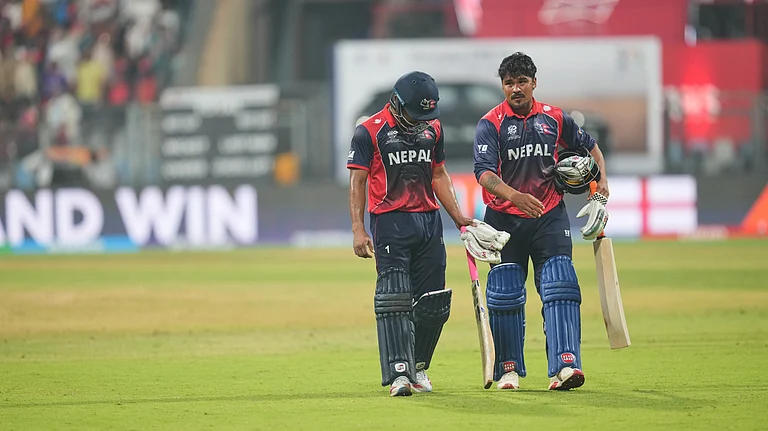The dates for the visit of the Chinese defence minister, Chi Haotian, to Pakistan had been finalised months before. But though Nawaz Sharif knew this when he invited Vajpayee to Lahore on February 20, he decided to grab the unique opportunity offered by bus diplomacy rather than listen to the insistence of battle-hardened bureaucrats that it was not 'diplomatically ' possible.
As Sharif prepared to step into his formal sherwani and salwar, he rested secure in the knowledge that invitations had been sent to the army, navy and air force chiefs requesting their presence at Wagah border and later at a banquet at Lahore fort.
He hadn't anticipated the 'regrets only' reply as the military establishment pleaded a prior engagement."They felt that as a politician, Nawaz Sharif was at liberty to play politics with the enemy, but they were more comfortable with Chi Haotian, basking in the presence of an old and time-tested ally, is how one defence source put it.
Controversy brewed on Friday night. Sharif was taken aback at the reluctance of the three chiefs, amid reports that they were ready to resign rather than send out the wrong signals. A former chief of army staff, General Mirza Aslam Beg, told one journalist that the three chiefs had taken the right decision, as"their presence at Wagah and their saluting Vajpayee would have sent wrong signals to the freedom fighters in Kashmir . Eyebrows remained raised all the same-during Rajiv Gandhi's visit to Islamabad, all three had been present at the airport as well as the banquet. And yes, they saluted.
General headquarters proffered the excuse that they had already committed to the banquet for the Chinese defence minister and could not be in two places at the same time. This was despite the fact that there were four hours to spare between the Lahore and Islamabad events. The trio did, however, show up the next day to meet with the 'enemy' of the last fifty years. There were no photographs of the 'salutes'-if there were any.
The military establishment had enough reason to stand by their guest and stay away from the 'historic' scenes at Wagah. Not so long ago the Russian prime minister had visited New Delhi, signing new treaties."The Chinese defence minister's trip to Pakistan may prove to be a defining moment in the evolving strategic equations in Asia, was one view. Nor was the military ready to forget that New Delhi had pointed fingers at Beijing after it had carried out the nuclear tests last May. Here was someone high up in the defence hierarchy in China, coming to Pakistan after it had carried out its own nuclear tests in reply, saying that Sino-Pakistan relations were crucial to subcontinental stability.
This is not to say that the army does not support improvement in bilateral relations over the border. Unlike his Indian counterpart, the chief of army staff Parvez Musharraf has ruled out war between the two armies. He has voiced concern over the fact that the real danger to Pakistan lies within its borders rather than outside. General headquarters also realises the bitter truth that the Kashmir policy of the last fifty years has not delivered. It may be unpleasant to have to smooth down rough relationships, but that is the only choice the military has-diplomacy, even if they skipped the dinner.

























